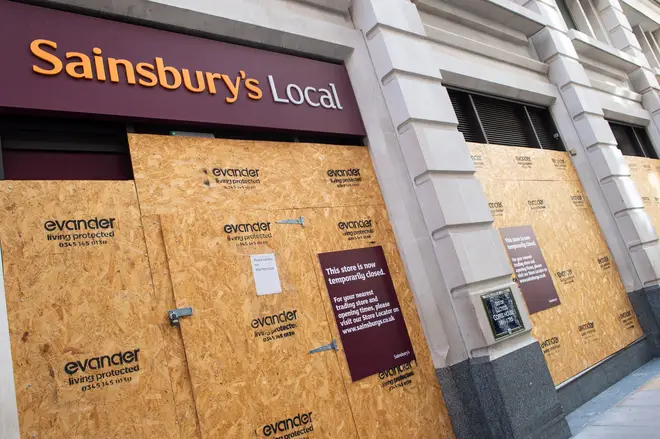
Iain Dale 10am - 1pm
12 August 2020, 05:48

Britain is set to be plunged into recession for the first time since the financial crisis today when figures will show the pandemic sent the economy a record 21 per cent down between April and June.
The dramatic 21 per cent downturn between April and June - the worst in western Europe - is expected to be confirmed by the Office for National Statistics (ONS) on Wednesday after a 2.2 per cent fall in the first three months of 2020.
A recession is defined as two successive quarters of decline in gross domestic product (GDP), which has not been seen in the UK since the financial crisis back in 2008.

Is there a recession coming?
It comes after ONS data showed around 730,000 UK workers have been removed from the payrolls of British companies since March when the coronavirus lockdown began in a sign of the toll taken on the economy by the pandemic.
Employment also dropped by the largest amount in a quarter since 2009 between May and June.
But despite the record-breaking GDP slump expected for the second quarter, experts will be keenly watching the monthly figure for June amid predictions it will show a sharp 8 per cent bounce-back as lockdown restrictions eased further.
This follows a far-lower-than-expected 1.8 per cent rebound month-on-month in May.
Attentions have now turned to the recovery, in particular after the Bank of England said last week that, while it expects the downturn to be less severe than first feared, the UK could take longer to rebound than previously predicted.
It forecasted GDP to shrink by 9.5 per cent this year, having warned in May over a 14 per cent slump in 2020.
However, it dashed hopes of a V-shaped recovery, saying the economy is not expected to jump back to pre-virus levels until the end of 2021.
Philip Shaw at Investec said: "We are forecasting a monthly increase of 8.1 per cent as more of the economy, such as 'non-essential' retailing, opened up in mid-June."
He added: "July's figures next month should contribute strongly to a material rebound in the third quarter, but the test will come in the autumn when there are no further 'lockdown releases' to boost the economy, some restrictions (perhaps just local) are imposed and programmes such as the furlough scheme are wound up."